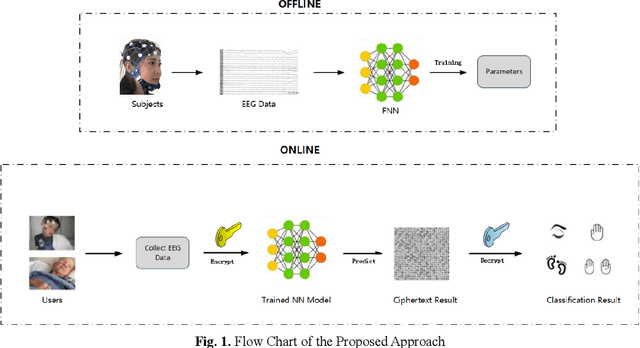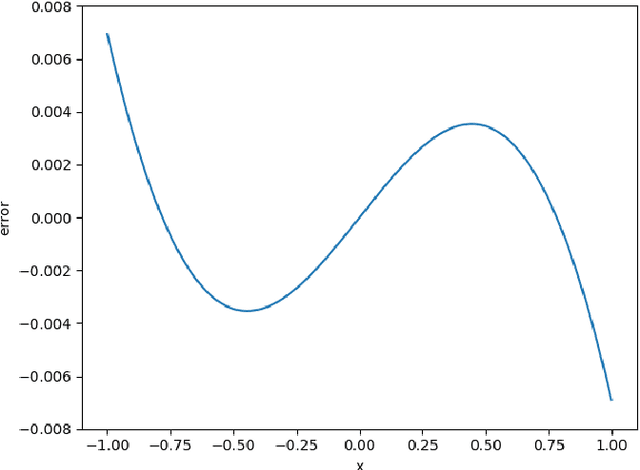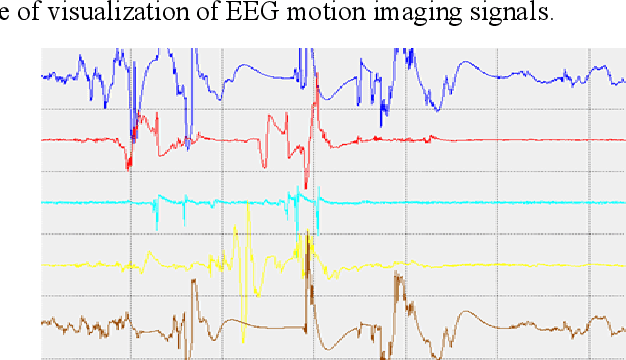Wenming Wang
Classification and Recognition of Encrypted EEG Data Neural Network
Jun 15, 2020



Abstract:With the rapid development of Machine Learning technology applied in electroencephalography (EEG) signals, Brain-Computer Interface (BCI) has emerged as a novel and convenient human-computer interaction for smart home, intelligent medical and other Internet of Things (IoT) scenarios. However, security issues such as sensitive information disclosure and unauthorized operations have not received sufficient concerns. There are still some defects with the existing solutions to encrypted EEG data such as low accuracy, high time complexity or slow processing speed. For this reason, a classification and recognition method of encrypted EEG data based on neural network is proposed, which adopts Paillier encryption algorithm to encrypt EEG data and meanwhile resolves the problem of floating point operations. In addition, it improves traditional feed-forward neural network (FNN) by using the approximate function instead of activation function and realizes multi-classification of encrypted EEG data. Extensive experiments are conducted to explore the effect of several metrics (such as the hidden neuron size and the learning rate updated by improved simulated annealing algorithm) on the recognition results. Followed by security and time cost analysis, the proposed model and approach are validated and evaluated on public EEG datasets provided by PhysioNet, BCI Competition IV and EPILEPSIAE. The experimental results show that our proposal has the satisfactory accuracy, efficiency and feasibility compared with other solutions.
 Add to Chrome
Add to Chrome Add to Firefox
Add to Firefox Add to Edge
Add to Edge